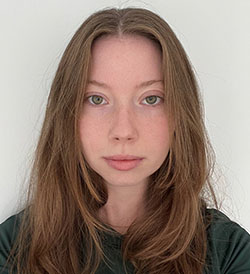Moving the needle in ovarian cancer research
Improving immunotherapy responses for ovarian cancer



Ovarian cancer is the most lethal gynecological cancer. In 2024, an estimated 3,000 women in Canada were diagnosed with ovarian cancerFootnote 1. While prevention and diagnostic screening tools for many cancer types have been widely successful, those for ovarian cancer have not achieved the same success to date. As such, the most promising avenue for ovarian cancer patients may be the advent of more effective therapies. Dr. Melica Nourmoussavi Brodeur, a gynecologic oncologist at the Jewish General Hospital, and her team are working to move the needle in ovarian cancer research through innovative solutions in immunotherapies.
Immunotherapy, a treatment that helps the immune system fight cancer, has achieved remarkable responses in cancer types that were once fatal. Its successes have brought new hope to ovarian cancer patients; however, clinical trials in ovarian cancer have shown overall disappointing responses. To overcome these barriers, Dr. Brodeur’s team is working to advance the understanding of the biology behind ovarian cancers to identify possible targets to improve responses to immunotherapy.
Ovarian cancer responses to immunotherapy are influenced by several factors, many of which still need to be investigated. Olivia Mckeeman, a Masters student in Dr. Brodeur’s lab, is supporting the research team’s work to understand how to target these factors in order to improve immunotherapy responses. More specifically, the research team is investigating combination epigenetic therapy to make the ovarian tumor environment more amenable to respond to immunotherapy. By inhibiting select epigenetic targets, they have observed an increased ability of immune cells to recognize ovarian cancer cells in preclinical models. “This research in particular has the potential to illuminate new approaches for chemo-resistant or recurrent patients with few other treatment options”, says Mckeeman.
Joining Dr. Brodeur, Olivia and the research team is Yelena Aizenberg, a patient partner who brings her lived experience to the lab bench. A long-term ovarian cancer survivor, patient advocate and healthcare provider, Yelena offers her expertise in several capacities, including writing grant applications, developing research proposals, reviewing and interpreting findings, co-designing research materials and disseminating research findings. “Being heard and taken seriously inspires and empowers me to continue to ensure that our voices are heard throughout all stages of research”, says Yelena. Yelena’s involvement in the research program illuminates the importance of patient partnership in biomedical research and provides an important mechanism to bridge the gaps between bench and bedside.
“The courageous stories of the ovarian patients that I care for continue to motivate me”, says Brodeur. “These patients are mothers, spouses, sisters, aunts, friends and more. I believe that clinician-scientists like myself are in a unique position to identify patients’ unmet needs and challenge research barriers for the next generation of gynecologic cancer patients.”
Overall, by conducting this much-needed research, the team aims to uncover new, potential ways to exploit epigenetic modulation and inform the design of next generation ovarian cancer therapeutics. As the research progresses, the team hopes to translate their findings into an investigator-led clinical trial and alter the trajectories of ovarian cancer patients worldwide.
Related links
- Date modified: